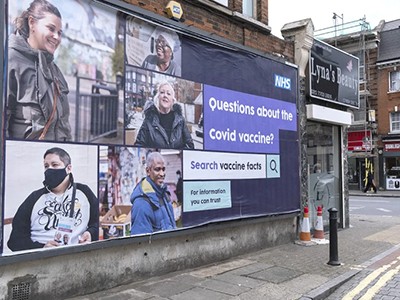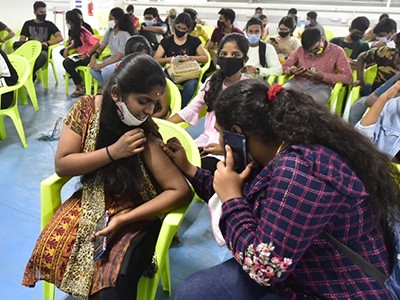For more than 20 years, I’ve studied how people learn false information and how to correct misbeliefs. For much of my career, the work was uncontroversial. But over the past five years, I’ve watched the field become politicized and come under sustained attack. Some of my colleagues have been subpoenaed to appear before US Congressional inquiries, and targeted by hostile freedom-of-information requests and lawsuits. Now, more than 50 National Science Foundation (NSF) grants on misinformation research — including mine — have been terminated.
Misinformation poses a bigger threat to democracy than you might think
Misinformation researchers are not alone: our colleagues in climate science have faced political attacks for decades. The wave of grant cancellations initiated by the current US administration are part of a wider attack on science and universities. Entire research fields are being targeted for elimination, particularly in the social sciences. Grants for studies on gender bias, discrimination, the health of people from sexual and gender minorities (LGBT+), environmental justice and educational inequities have also been cancelled for no longer aligning with US government priorities.
The loss of politically independent federal funding is enormous, and will have serious negative impacts on US research. If grants can be cancelled at any time for political reasons, it becomes impossible to do good science. Researchers need stability to plan staffing, train graduate students and work with community partners. That stability vanishes if contracts are constantly at risk. Cancelling a three-year longitudinal study in year two wastes hundreds of hours of participant and researcher effort, and leaves research questions unanswered. There is also the risk of losing future scientists, because many early-career researchers depend on grant funding. When grants disappear, so do their jobs, and many will leave the field altogether.
Science’s big problem is a loss of influence, not a loss of trust
What can US researchers do in this situation? One thing is clear: do not surrender to political pressure or abandon crucial research questions. Scientists can’t solve the politicization of science on our own, and grantees can’t just do a small pivot and survive. But until broader systemic solutions materialize, social scientists still have some options to continue research on targeted topics.
One option is to conduct new analyses on existing data sets. Organizations such as Databrary, OpenNeuro, ICSPR, LDbase and OSF all provide access to useful data for social-science research. Although not all research questions lend themselves to secondary data analysis, much can be learnt by reusing existing data.
Scientists can also rely more on global collaborations. As the United States reduces its research spending, other countries can help to fill the gap. For example, European Research Council synergy grants allow one of the principal investigators to be from outside the European Union.




